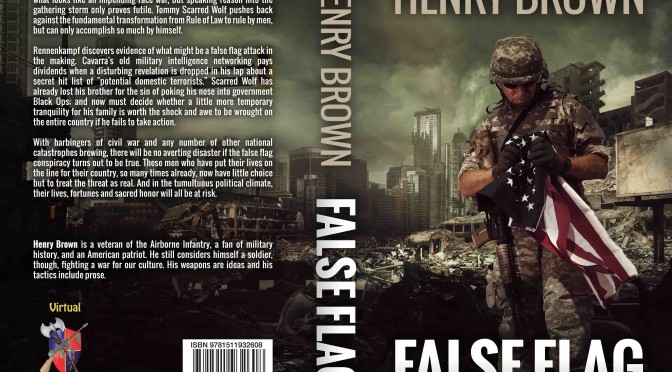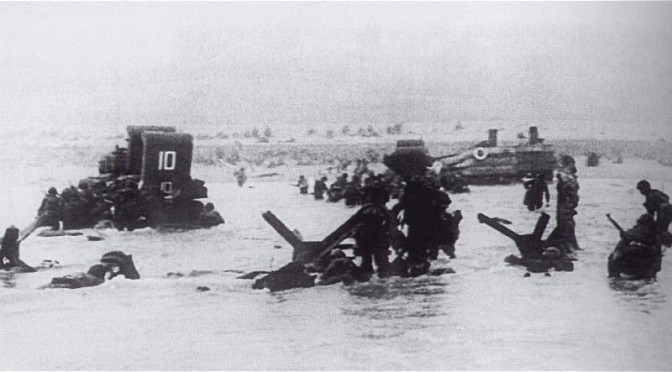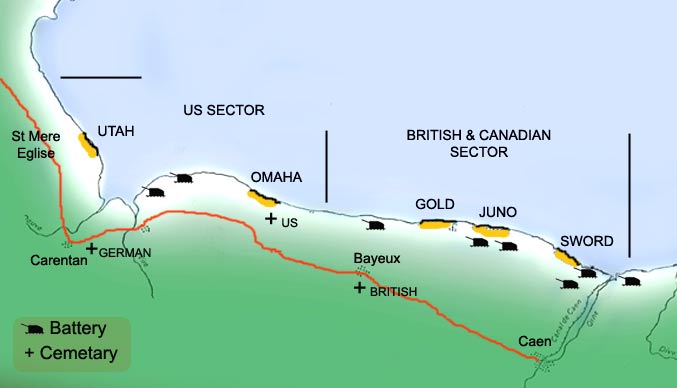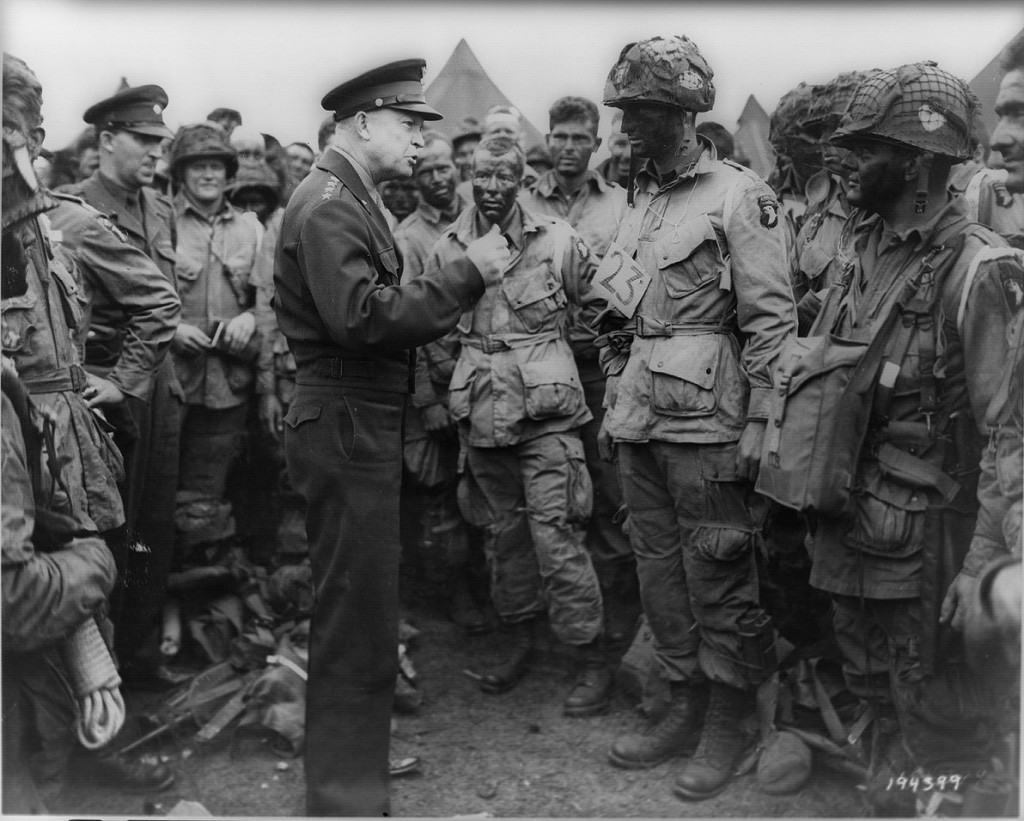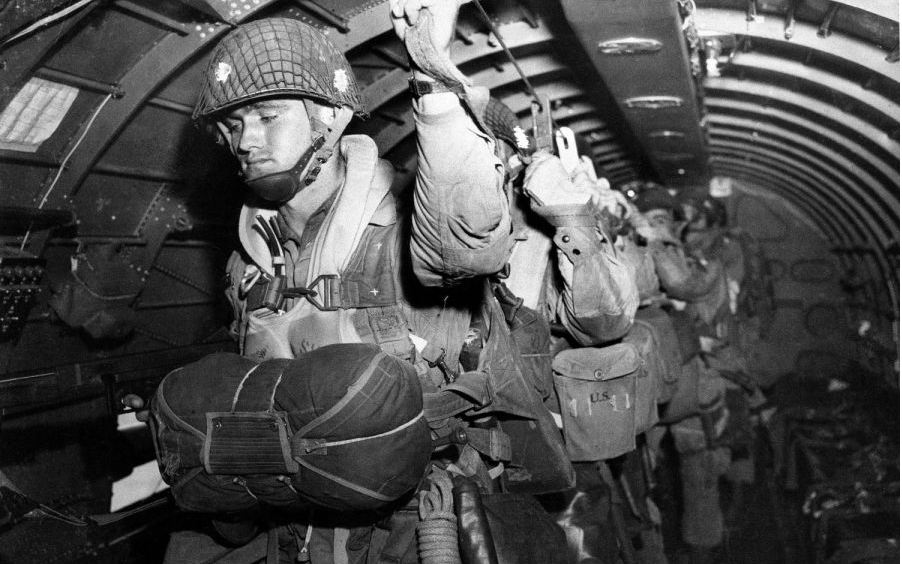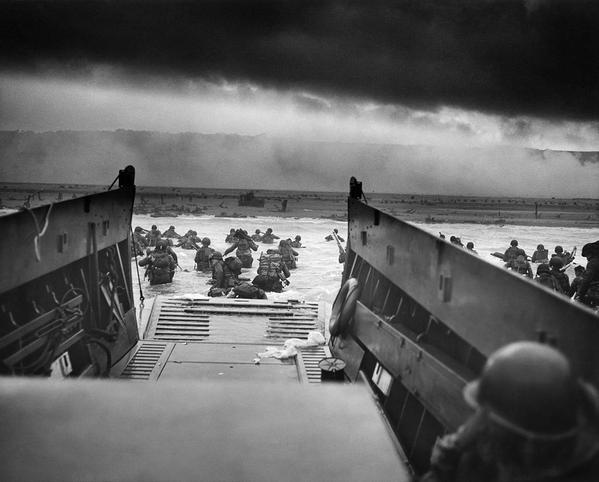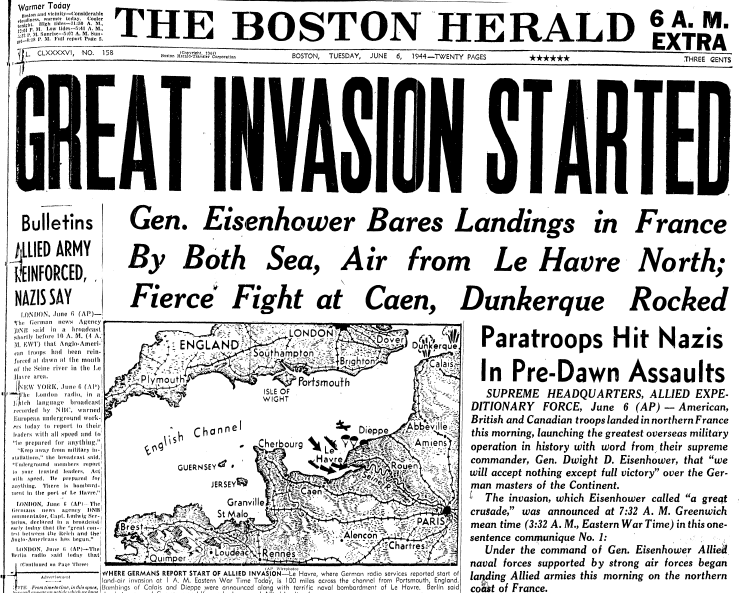Things get weird starting with this and the preceding chapter. You ever ran into somebody and just knew there was something seriously wrong with them, even though technically they looked normal?
6
D MINUS 83
COCCOCINO COUNTY, ARIZONA
Dwight Cavarra measured the chemicals and prepared to mix them. In the back room shop of CBC Southwest Tactical were 21 different molds, including the one in front of him. This one was for his patented polymer pistol grip stock for the Springfield M1A.
Once the initial casting cooled, the cutting, drilling, grinding and sanding would begin. Then the bipod would be fitted, the hinged, rubber-padded butt plate affixed over the cleaning kit compartment, then the whole assembly boxed for shipping.
The cheap walkie-talkie squawked in Cavarra’s breast pocket. “I need to talk to you when you get a minute, Rocco.”
He held the radio to his mouth and thumbed the push-to-talk button. “I’ll be right out.”
Cavarra—”Rocco” to his friends—was built stocky, and his once black hair was now mostly white. His swarthy Sicilian features and cauliflower ears had earned him the ethnically insensitive nickname, which stuck no matter where he went. But whereas he once resembled a mob enforcer, he now looked more like a mafia don.
He left the shop to enter the front counter area. Waiting for him was Leon Campbell. Leon was tall, lanky, with a dark brown complexion, and coarse black hair buzzed close to his scalp.
Out in the lobby the television was on, turned to Fox News. Rocco had sworn off TV in general, and the lapdog media in particular. But customers liked to watch it while waiting around, and Fox at least allowed some diversity of opinion…up to a point. A customer sat on one of the padded chairs in the lobby, staring at the screen.
“What’s up?” Rocco asked Leon.
“Probably in your office would be better,” Leon replied in his lazy marble-mouthed Georgia drawl.
Just then Carlos Bojado entered through the front door, with a tricked-out SKS rifle in one hand. Carlos was about Cavarra’s height, but still in really good shape, like Leon. He had a few white hairs now himself, though.
Even the young guys are getting long-in-the-tooth, Cavarra thought.
“I need to talk, too,” Carlos said, slipping his radio into his cargo pocket.
Cavarra gestured toward his office. “Let’s all go back, then.”
The three of them entered Rocco’s office. He didn’t take the chair behind his desk, but sat with them on the furniture in front of it.
The walls were covered with plaques, framed photographs and certificates from the Navy and Naval Special Warfare. One of the pictures, taken in a temporary encampment in the Sudan which officially never existed, captured three men in the “see no evil, hear no evil, speak no evil” pose. The man covering his mouth: Cole; and the one covering his ears: Fava-Vargas, were long dead. The man covering his eyes was Tommy Scarred Wolf. Another photo captured Tommy, Rocco, Leon, Carlos and Jake McCallum posing together on the deck of a cargo ship. They had been the only survivors (save for a couple pilots) of that mission in Sudan all those years ago.
“You first, Leon,” Cavarra said.
“This cat out there,” Leon said, chinning toward the door, “the one in the lobby?”
Cavarra nodded. “He’s the one wants to order all the night vision and ballistic armor, right?”
An order like this one would go far toward making this a profitable fiscal quarter.
“Somethin’ about the dude bothers me,” Leon said. “I don’t wanna sell him nothin’. I wanna tell him to hit the trail and don’t come back.”
“This must be the day for it,” Carlos said. “This guy I got…”
Cavarra’s eyebrows furrowed and he raised his hand to interrupt Carlos. “One at a time. What’s wrong with him, Cannonball?”
Leon fidgeted in his seat. “I don’t know, exactly. I’m gettin’ a bad vibe from him. Gives me the heebie-jeebies.”
“Think he might be from the Alphabets?” Cavarra asked. All three of them were careful to keep everything about the business above-board and adherent to current legislation. But of course legality didn’t guarantee tolerance from the federal government.
Leon shrugged. “I mean, he could be ATF or FBI or somethin’. But I think it’s deeper than that. I can’t prove it, man, but I’d bet money there’s somethin’ dirty about this cat.”
Rocco puffed his cheeks. Leon was a friend and he knew him pretty well. “It’s a decent pile of money, Leon. And who-knows-how-much word of mouth.”
“I know,” Leon said.
“Okay,” Cavarra said. “Your turn, Carlos.”
“I think I know what kind of vibe my guy’s putting out,” Carlos said. “He smells like one of those white separatists or something.”
“Anything in particular?” Cavarra asked.
“Mostly the way he looks at me,” Carlos said. “And he keeps asking if we have a fourth partner he hasn’t seen yet. That seems to be his biggest concern.”
“Like, ‘do you have somebody white I can deal with’?” Leon guessed.
“Yeah,” Carlos said. “That’s the vibe I’m getting. Like just now, he didn’t want to come inside with me. He’s standing around outside, like if he comes in a building with a Spic and a Spade, he’ll pick up a disease.”
“Don’t forget the Dago,” Cavarra said, trying to lighten the atmosphere.
“Who knows,” Leon quipped, “he might at least consider you part human.”
“The good news is,” Cavarra said, gesturing toward Leon, “we can test this theory. Hand him off to our buddy, here. See if he agrees to let Cannonball take him through the Target Course.”
Leon patted his sidearm. “I got hollow points, Rocco. Make a nasty mess out there. Just sayin’.”
Carlos elbowed him. “Hey, are Neo-Nazis in season?”
“Open season,” Leon replied. “Got my huntin’ license in the truck.”
“Hey, seriously,” Cavarra said. “If you decide Carlos is right, send him packing. Don’t even get started.”
“Want me to send this one away, too?” Leon asked, gesturing toward the lobby.
“Nah. I’ll take care of it,” Cavarra said, standing.
Leon and Carlos stood with him. They exited the office in a group. Cavarra marched toward the man in the lobby, but stopped when something caught his attention on the TV.
“…The Pottawatomie Sheriff’s Department says they found evidence of occultic rituals in the basement of this house,” the reporter was saying, as the screen filled with the image of an average-looking house on a residential street in Norman, Oklahoma, “including animal and human sacrifice. The chief suspect is a local high school teacher, also suspected of numerous sexual relationships with students…”
“Ho-lee…” Carlos intoned.
“That’s Tommy’s stomping ground,” Cavarra said.
“I think you’re right,” Leon agreed.
“That’s where Tommy lives?” Carlos asked, incredulous.
“Not in that house,” Leon replied, with a condescending tone. “But he’s Sheriff of that county.”
Carlos flipped him the bird.
They continued watching, and it was reported that one deputy was injured in the arrest, but there was no mention of the sheriff himself.
CBC Southwest Tactical was located a short drive from Flagstaff. The dry, rocky surrounding terrain looked like something out of a Clint Eastwood movie. The Outlaw Jose Wales, to be specific. The office was a converted “manufactured home” on a concrete slab.
Back outside, Leon found the customer Carlos described smoking a cigarette over by the target shed. Leon marched toward him and checked his clipboard on the way. “Arden Thatcher?”
Thatcher glanced up, took a look at the tall, athletic black man, and his disapproval was obvious. “Yeah.”
“You want to qualify on the Western Shootout Course today. Is that right?”
“Yeah,” Thatcher said, taking a drag of his cigarette.
“Carlos already showed you the route, and briefed you on range safety?”
“Yeah,” Thatcher said. “Doesn’t anyone else work here?”
“What do you mean?” Leon asked, calm washing over him as if he was taking up trigger slack.
Arden Thatcher was a short, skinny guy with bland features and long blond hair in a pony tail. He wore jeans, cowboy boots, and a black T-shirt with some country-western musician’s name on it in stylized letters. His lips now twisted into a smile that struck Leon as hopelessly phony. “It’s just the two of you runnin’ the show here? You and the Mexican? …I mean, the Spanish guy?”
“Our partner,” Leon said, “he’s the Sicilian guy—he’s busy with sumpthin’ else right now. Can I get you to sign the paperwork now, Mr. Thatcher?”
Thatcher’s gaze dropped to the clipboard and pen Leon held. Or was it the dark hand that held them? His stare was one a person would level at an object infected with the Ebola Virus. “What’s on those papers?”
“Carlos should have explained it to you,” Leon replied, patiently. “It confirms that we explained the safety rules; says you agree to not hold us liable for what happens if you violate those rules…all the usual stuff.”
“That sounds almost like a threat,” Thatcher said.
“Not at all,” Leon said. “We’re careful to advise everybody who comes here how to stay safe. If you ignore us and do sumpthin’ unsafe anyway, and get hurt, that’s not our fault, is it?”
Thatcher pursed his lips and continued to stare at the paperwork.
“And we’re gonna need payment up front,” Leon added.
Thatcher shook his head. “I ain’t signin’ that and I ain’t payin’ for shit up front.”
Leon forced a smile. “In that case, thanks for visitin’ and enjoy your drive.”
“I drove all day to get here and payed for a motel already,” Thatcher said, angrily.
“Afraid I’m not catchin’ your point, Mr. Thatcher.”
“This is false advertisin’,” Thatcher declared. “Your website don’t say nothin’ about how you really run this rinky-dink shithole.”
“What is it that has you confused?” Leon asked.
“Oh, I ain’t confused. And neither will the Better Business Bureau be, when I report your ass. You wanna play? Let’s play.”
“Just curious,” Leon said, “what is it you think we wasn’t honest about?”
Thatcher was red-faced and Leon could tell he normally would have tried something stupid. But his gaze kept returning to the holstered Ruger P90 on Leon’s hip.
“Well ain’t you just a great salesman?” Thatcher finally said, with a sarcastic tone. “I’ll have to write this company and tell ’em what a good salesman you are. You really make me want to give you my business.” By the time he finished saying this he had his back turned and was halfway back to where he’d parked his Toyota Titan.
“Since I’m one of the owners, you can hand the letter directly to me,” Leon said to his back. He took position by a tree that was thick enough for temporary cover in a pinch, in case this loose cannon had something hidden in his vehicle and decided to try something really stupid.
The Titan started and Thatcher was heavy on the gas tearing out of there,
“Don’t let the door hit you in the fourth point on the way out,” Leon muttered, half aloud.
Inside, Cavarra called the other customer to the front counter. Before doing so he had checked the background of both questionable customers on internet databases while in his office. Both of them had clean records.
Almost too clean.
But now, as Terrance Handel approached the counter and Rocco studied his face, he understood what Leon had meant.
Handel was a strapping dude–over six feet tall and muscular, with a handsome enough face. But he gave off a vibe that suggested something ugly and cold.
Cavarra gave himself this assignment automatically despite the fact that he dreaded it. He’d never had to do this to a customer and didn’t want to. Not only did it mean turning down money; but also casting judgment on somebody for no defined reason.
Although CBC Southwest Tactical was a partnership between the three of them, he still usually had the final say in business decisions. One of the costs of leadership was playing the bad guy in situations like this.
“I’m sorry, Mr. Handel, but we won’t be doing business with you.”
Surprise registered in Handel’s narrowing eyes, but not to the degree that would seem normal. “Excuse me?”
Cavarra repeated himself.
“I don’t understand,” Handel said. “Why? I’m willing to pay your asking price.”
“I appreciate that, sir,” Cavarra said. “I’m afraid we’d just rather not do business with you.”
Handel reminded Cavarra of a robot trying to process data that “does not compute” in an old Science Fiction movie. Finally, he said, “That’s not an answer. You at least have to tell me why.”
Cavarra began to sweat. Inside he was squirming, but he kept his voice calm and neutral. “No sir. We’re not required to disclose our business decisions.”
Handel turned to study Carlos, then back to Cavarra with an appraising gaze. “That’s ridiculous. You can’t just refuse service to a customer.”
“We’re not a hospital,” Cavarra said, “so we reserve the right to refuse service to whoever we please. Unless you’re a homosexual, we’re allowed to run our business as if this was still a free country.”
“Is that it?” Handel asked, squinting in unbelief. “You think I’m gay?”
Rocco shook his head. “I have no idea; and I don’t want to know. Even if you are, we don’t bake cakes or hire out space for wedding receptions, anyway. Bottom line is, we’re not gonna sell you anything.”
Handel gave both Rocco and Carlos another measuring stare, and finally turned to exit.
Cavarra felt even more uneasy, now. For some reason it would have sat better with him had the guy been outraged, cussed and threatened for a while before storming off to slam the door behind him. This guy just took it in stride a little too well, for a civilian.
“We’ll make up the money somewhere else, Rocco,” Carlos said, once Handel was gone. “We’ve been doing real good, considering the economy. We could become millionaires just by selling ammo, these days.”
Leon came in through the side door. “I’m pretty sure you was right, Carlos,” he said.
“Let’s mark this date on the calendar,” Cavarra said, grimacing. “From now on this will be Turn Customers Away Day.”
“Hey,” Carlos said, pointing to the TV again, “they’re still holding fast on the Garber Ranch.”
Leon stopped to look and Rocco came around the counter to direct his attention to the flat screen. News cameras panned over a parked convoy of APCs and armored vans, with Alphabets in black uniforms, armor, masks and helmets, brandishing automatic weapons. Then there was a short montage of different armed civilians in old-school woodland camouflage. Then a shot of an ambulance making its way between the opposed forces to the ranch house.
“Somebody get shot?” Rocco asked.
“Shh!” Carlos held his hand up.
“…The elderly rancher is thought to have suffered a heart attack,” the news announcer said. “Right now the rumors are that it was due to the stress over the standoff; but as yet there is no confirmation.”
“Whaddya think, Rocco?” Leon asked. “They gonna throw down on each other there?”
Cavarra exhaled heavily. “You know what I believe. This is 1913 Austria-Hungary. I don’t know if the whole thing touches off at Garber Ranch or somewhere else. And so far as we’re concerned, it probably won’t matter a whole lot where the fuse gets lit.”
“Come on, man,” Carlos said, waving dismissively. “This is America. That crazy stuff doesn’t happen here. We always work it out, in the end.”
Cavarra glanced at his friend, shook his head sadly and returned to the workshop.
###
###
The Kindle version of False Flag is on sale for 99 cents for a couple more days. After that it will likely jump to a price point that is $4+.
The paperback will probably stay at its current price for a long time. As long as the novel is, it can’t really sell for less and be profitable.
###

